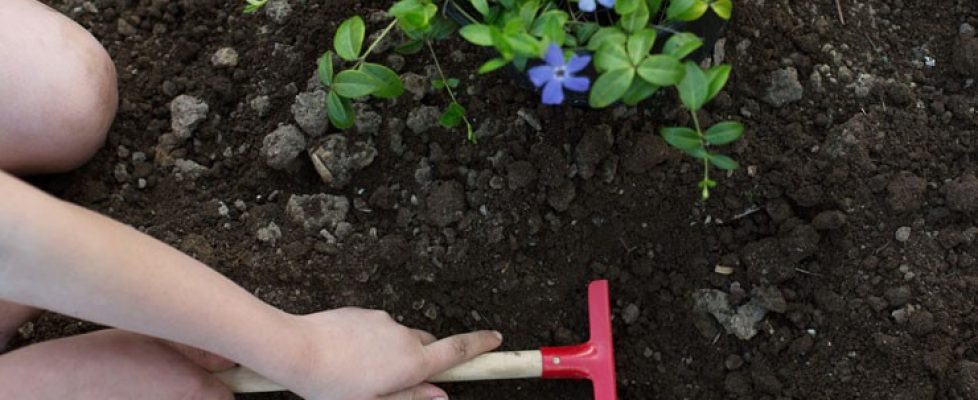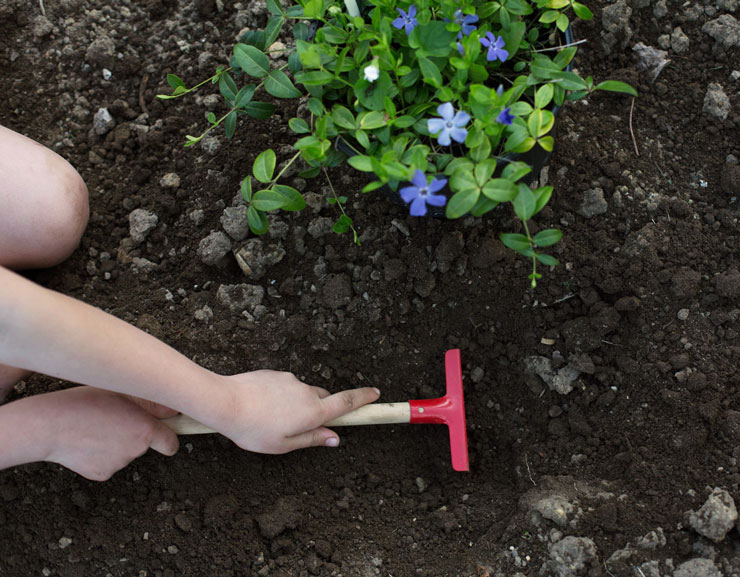8 Tips for Gardening with Children
Many of our generation did not have the privilege of regular gardening with a parent or grandparent, and we’re trying to simultaneously learn and teach our own children the joys of the garden. But, gardening, like parenting, can at times be a tremendous amount of work with few obvious joys. Gardening is rewarding, and often on a shorter timescale than parenting, but it can lack an immediacy for children. You might find additional frustration in thinking your children should be awed or industrious instead of whining or disappearing. You might feel overwhelmed by the task of the genuine, hard work of getting in a garden and inspiring your children with the wonders of nature. The following are a few ideas that could improve your experience, and maybe foster a future love of gardening in your children.
- Don’t expect much most of the time. In our family, the children’s main job in the garden, especially when they were younger, was to simply not make my job harder. This meant teaching them some garden etiquette- stay on the paths, check with me before you weed a bed, love ladybugs and kill potato beetles. It also means reminding them without anger when in their hurry to get to me they race right across a freshly planted bed of lettuce.
- Whenever possible, limit gardening time to whatever amount is pleasant. If you’re enjoying your task, your children will more likely enjoy being around you. They will pull weeds beside you just because they want to be with you in your quiet, industrious mood. They might also just tell you stories as they stare at clouds while you build a bed. It’s valuable time regardless of whether you’re the only one working. You may find it more relaxing to just have their company instead of needing to manage their work.
- Plant flowers. These beds will get the most attention and the most eager harvesting. If they get a little weedy, that’s just more greenery for bouquets. Plant things you love to look at, but you also do not mind if the children pick them. There is great joy in a bed overrun with calendula, daisies, borage or sunflowers. This is a good place to be playful and take risks in your own gardening, and to let your children take their own risks, as well.
- Be grateful for the jobs your children choose, even if they do not make sense to you. I know a ten-year-old who helped her neighbor rescue the worms out of a newly turned bed. You might teach about worms, or you might just savor the fact that your child cares about worms. It’s okay to not treat every moment as “teachable”.
- You do not have to give your child their own garden space. I believe some children will love and tend a corner that’s all their own, but my own left it to weeds that crept into surrounding beds. We were all happier when they gave me ideas to implement. Then, they could dabble without me feeling irritated by the unkempt part.
- We don’t get to choose which things will inspire wonder. One spring, my daughter walked all around the pasture with me counting the earthworms under the previous summer’s cow pats. Really, it was gross, but she was amazed. In the garden, share your wonder, but be comfortable with the notion that the same things might bore or disgust your child.
- When you really need them to really work, it’s okay to bribe them. If it’s time to pick beans for an hour and then tomatoes, or it’s time for a child to help you plant carrots before the next spring rain, ice cream might be a fine way to show your gratitude.
- And finally, when it’s time to really work, you might be surprised at how your focus and drive will carry your children along. You might feel real joy at seeing a family effort. These are the moments to remember the next time they’re rolling in the path complaining about the smell of potato beetles.


